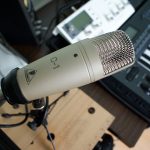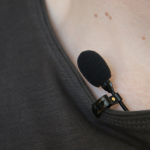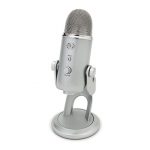
AKG are a brand name most musicians come across, known for their microphone and headphone technology, the brand have been active for 70 years now, and in that time have manufactured some classic microphones. In todays AKG D5 review, we’re looking at a microphone designed to be hard wearing and great for live vocals of all descriptions.
AKG D5 vs Shure SM58
Perhaps the most iconic vocal microphone ever made is the Shure Sm58, and the D5 has been described as AKG’s competition for the mic we have seen used on so many occasions. It is similar in a lot of ways, for instance the fact that it is dynamic, designed for vocals with a frequency response which tries to enhance vocals and help them to stand out in the mix, both live and if needed, in studios. Dynamic mics inevitably take a beating, and the D5’s rugged construction means it stands the test of live vocalists battering, shaking and constantly moving their microphones, just like the SM58. This mic is anything but a copycat though and deserves to be talked about on its own merits.
AKG D5 Features
The D5 isn’t the most expensive mic in the world, and being dynamic, it is designed to be hard wearing as much as for audio, but it strikes a good balance, and considering the price point at which this mic can be found, it is hard to argue with the features on offer.
- Pickup pattern designed for maximizing gain on vocals and avoiding picking up other, unwanted sounds.
- Shock mounted capsule means that unwanted noise is eliminated.
- Extremely rugged and durable, years of use are on offer with little risk of your mic breaking.
- Dynamic mic with XLR connection in-keeping with industry standard, especially for live sound uses.
- Comes with a carry bag and microphone clip for connecting to stands.
A look through other D5 reviews on Amazon or other retailers, as well as the many music gear publications out there, can throw up some interesting opinions. The comparison with the SM58 due to the similar pricing point and features is inevitable. Although I am a big fan of both microphones, there are quite a few reviews on Amazon that have directly compared the two, and some say that the D5 gives the vocals a bit more of a shine. Considering the price of the D5, it is easy to see why the sales are so good, and why so many live venues, practice rooms and home studios are using the D5 to capture and even record vocals.
In terms of recording, there are better microphones out there. Being a dynamic mic, the AKG D5 is designed mainly for live vocals. It has a bit of versatility, you can use it for guitars and it has room to experiment, especially in a live scenario, but realistically for studios a condenser or even good quality USB microphone could do a more effective job, especially for tracking guitars and other instruments. That said, if you’re recording guide tracks or rough demos, the D5 can hold its own.
My Experience with the AKG D5 Vocal Microphone
I used to be a Shure SM57 or Sm58 guy for live microphones, when it comes to vocals and guitars anyway. This way you know what you’re getting. Recently though I’ve seen some really awesome live setups (and even studio setups) with mics I didn’t expect to be there, so I’ve been more willing to experiment. The AKG D5 is one of those I’ve experimented with, and honestly I never expected to be so impressed. For live vocals, this seems to work really well with certain vocalists, and is certainly a good option for a lot of bands. I’ve done a little bit of tracking with it too, mainly rough takes and guide vocals, but for those purposes it certainly has done a passable job.
Conclusion
AKG manufacture some amazing audio gear, and this microphone, whilst not their very best, does what it sets out to. It doesn’t have the versatility or quality of say a C414, but in terms of using live the D5 is great. It helps the vocals cut through the mix and allows for a better performance, whilst cutting down on the feedback issues and noise issues that can often become an embarrassing problem for audio engineers.
If you want a great value, budget live microphone which doesn’t require phantom power, this could be an option for you. If you’ve got the chance, compare it to the SM58 and see which sound you prefer, but realistically, I doubt you’ll be disappointed with this mic.




